Lire sur le site de Soccer Nostalgia The Soccernostalgia Interview-Part 63
Cet article fait partie de la série Dialogue avec Soccer Nostalgia
Lire la version en anglais. English version here
Soccernostalgia : Henri Michel a débuté sa quatrième saison à la tête de la France dans sa pire position depuis plus d’une décennie après une saison décevante et de nombreux joueurs ayant pris leur retraite. Quelles ont été les perspectives pour cette nouvelle saison ?
Bruno Colombari : Il n’y avait quasiment aucune chance de se qualifier pour l’Euro 1988, ce qui veut dire que les prochains matchs à enjeu étaient renvoyés à la rentrée suivante. Les Bleus se retrouvaient donc un peu dans la même situation qu’à l’été 1979, sauf qu’à l’époque les cadres étaient beaucoup plus jeunes. L’idée était donc de poursuivre la reconstruction amorcée après la Coupe du monde, mais qui avait débouché sur une saison affreuse avec deux buts marqués.
La saison a débuté par un match amical le 12 août 1987 à Berlin-Ouest contre l’Allemagne de l’Ouest. La France s’incline (1-2), avec Bruno Martini et Eric Cantona qui font leurs débuts (Cantona marque et s’associe pour la première fois à Jean-Pierre Papin). Quels ont été les enseignements tirés de ce match ?
Tout d’abord que l’entame a été calamiteuse, avec deux buts de Völler en moins de dix minutes et un troisième refusé par l’arbitre, on ne sait pas pourquoi. Là, honnêtement j’ai pris peur, j’ai cru qu’on allait vers une défaite écrasante, pire que celle contre la Pologne en août 1982. Heureusement que c’était un match amical et que Cantona a réduit le score avant la mi-temps, ce qui a un peu rééquilibré les débats. Mais cette équipe de France-là, qui avait pourtant 8 joueurs de la Coupe du monde sur la pelouse, faisait peine à voir.
Ce match contre l’Allemagne de l’Ouest était aussi le dernier de Patrick Battiston… (jusqu’à ce que Platini le rappelle l’année suivante). Comment cette nouvelle a-t-elle été accueillie après le départ à la retraite d’une énième star des années de gloire ?
Toute cette période a été mal gérée, les trentenaires partaient les uns après les autres comme si plus rien ne les retenait en sélection. Platini n’était plus là, mais lui avait terminé sa carrière. Les autres, hormis Bats, qui n’était international que depuis 4 ans, et Fernandez et Amoros, qui rêvaient tous deux du capitanat, n’avaient tout simplement plus envie de l’équipe de France. Ils avaient bien compris que sans Platini tout serait très compliqué. Mais tout n’a pas été fait pour les retenir, loin de là.
Le prochain match de la France fut le match de qualification pour l’Euro à Moscou contre la forte équipe de l’Union soviétique, le 9 septembre 1987. Les Soviétiques étaient sur le point de se qualifier et il n’y avait pas grand-chose en jeu. La France est repartie avec un match nul satisfaisant (1-1) à l’extérieur. Comment cette performance a-t-elle été perçue par la presse ?
Satisfaction au niveau du résultat, car faire 1-1 contre une très forte équipe soviétique (qui sera finaliste de l’Euro l’année suivante), même si elle n’était pas brillante ce jour-l), c’était une bonne performance. Mais elle n’était pas suffisante pour garder une toute petite chance de qualification car pour ça, il fallait gagner les trois derniers matchs, et que l’URSS perde ses trois derniers, dont celui-là. Au niveau du jeu, c’était encore une fois très pauvre avec très peu d’occasions et un match très physique. Cette équipe-là semblait plus solide que la saison dernière, mais toujours aussi peu inspirée.
La France a terminé cette année décevante avec son dernier match de qualification pour l’Euro, le 18 novembre 1987, à Paris contre l’Allemagne de l’Est. La France dont deux débutants (Kastendeuch et Germain) s’est inclinée (0-1) sur un but de dernière minute. Cela résume-t-il l’année cauchemardesque de la France ?
Auparavant, elle avait déjà fait match nul contre la Norvège à domicile (1-1) en ne montrant pas grand chose. Cet automne-là ressemblait déjà à celui de 1993, avec ses défaites contre Israël et la Bulgarie, et cette impression que le Parc des Princes devenait une destination touristique pour les adversaires. Les Bleus finissaient quatrième de leur groupe, devant l’Islande et semblaient renvoyés vingt ans plus tôt, quand ils ne battaient plus personne dans l’indifférence générale.
L’année 1988 devait débuter avec un tournoi à quatre équipes organisé par la France « Tournoi-France 88 ». Cela a été considéré comme un événement préparatoire pour constituer une nouvelle équipe avant la Coupe du monde 1990. Y avait-il de l’optimisme avant ce tournoi ?
Non, car ce genre de tournoi amical peut avoir un sens s’il prépare une phase finale, comme le tournoi Hassan-II en 1998 ou en 2000 par exemple. Mais là, alors que les Bleus étaient déjà éliminés, en plein hiver et dans les ambiances déprimantes de Toulouse et de Monaco.
Avant le tournoi, la France s’est rendue à Tel Aviv pour affronter Israël le 27 janvier 1988. Le match s’est terminé sur un nouveau match nul décevant (1-1). Quelle a été la réaction de la presse ?
Ce déplacement n’était pas voulu par Henri Michel, qui décidément était lâché par tout le monde, y compris les instances fédérales. Lui souhaitait une tournée sur le continent américain pour remobiliser le groupe, à la place il a eu un amical en Israël et ce tournoi de pacotille. Il était vraiment déçu, d’autant plus que Bordeaux était allé en Californie en janvier avec ses internationaux, autrement dit, ce qui était possible pour les clubs ne l’était pas pour la sélection.
Pouvez-vous décrire le conflit qui a fait grand bruit avant le Tournoi entre Luis Fernández et Manuel Amoros ?
Les deux souhaitaient avoir le brassard de capitaine et Henri Michel, comme souvent, n’arrivait pas à se décider. Depuis l’arrêt de Platini, il avait été porté par Tigana puis Battiston et Fernandez l’avait récupéré contre l’URSS et la Norvège, puis Amoros l’avait eu contre la RDA car Fernandez ne jouait pas. Finalement, contre la Suisse, Henri Michel désigne Amoros comme capitaine et Fernandez est remplaçant. Ce dernier se plaint et critique le sélectionneur, alors qu’Amoros parle de « tricheurs ». Le président de la FFF rappelle que c’est Henri Michel qui décide, ce qui montre au passage le peu d’autorité du sélectionneur…
La France a débuté le « Tournoi-France 88 » à Toulouse le 2 février contre la Suisse. La France s’est imposée (2-1) en marquant deux fois dans les dix premières minutes. Comment cela était-il perçu à l’époque ?
Enfin une victoire ! Mais c’était dans un match sans enjeu, et si elle a été acquise très vite, les Suisses sont revenus dans le match et ont dominé la deuxième période, où Papin est revenu. Pour le reste, objectivement ces matchs-là n’intéressaient personne. Sans doute pas même les joueurs, d’ailleurs.
La France a remporté le Tournoi-France 88 à Monaco le 5 février après avoir battu le Maroc (2-1). Y a-t-il eu un certain optimisme après cela ?
Non, c’était un match amical sans aucune importance (hormis le fait que c’était la première rencontre avec le Maroc, dix ans après France-Tunisie) qui s’est joué dans l’indifférence générale. Les Marocains jouaient en plus avec des jeunes et n’avaient pas appelés leurs meilleurs joueurs, c’était clairement une équipe B, rien à voir avec celle qui avait évolué au Mexique.
Ce match contre le Maroc était le dernier match de Bruno Bellone pour la France. Comment jugez-vous sa carrière internationale, débutée en 1981 ?
Elle a été plutôt bonne, même si elle ne s’est jamais approchée de celle d’un Didier Six ou d’un Dominique Rocheteau. Bellone était un gaucher explosif avec une grosse frappe de balle, et il était très utile comme remplaçant face à des défenses fatiguées. Il était aussi dépendant de bons passeurs comme l’étaient Giresse ou Platini. Il aura quand même participé aux deux Coupes du monde 1982 et 1986 et à l’Euro 1984.
Le prochain match de la France était un match amical à Bordeaux le 23 mars 1988 contre l’Espagne. Jean-Philippe Durand a fait ses débuts dans ce match aux côtés de Marcel Dib. La France s’est imposée (2-1) grâce à un but mémorable de Fernandez. Était-ce une bonne performance contre une équipe de haut niveau ?
Oui, certainement, c’était même la seule performance convaincante de la deuxième partie du mandat d’Henri Michel. D’une certaine manière, cette victoire annonçait les deux autres de 1991, avec Platini sélectionneur, un milieu très défensif (Durand, Bijotat et Fernandez derrière Gérald Passi) et le duo Papin-Cantona devant. Elle montrait que l’équipe de France avait encore quelques individualités de talent, mais pas de projet collectif dans la durée. Donc elle était capable de faire des coups d’éclat ponctuels comme celui-là, mais pas de se qualifier pour une phase finale.
La France a terminé la saison (1987/88) sur un énième match décevant. Un match nul contre l’Irlande du Nord à Belfast le 27 avril 1988. Comment cette performance à l’extérieur a-t-elle été analysée par la presse ?
Ce match en a remplacé un prévu contre la Yougoslavie, mais le tirage au sort des phases qualificatives pour la Coupe du monde 1990 a mis les Yougoslaves (une équipe redoutable à l’époque) dans le groupe des Bleus. La FFF a donc choisi l’Irlande du Nord. Mais l’attaque des Bleus (Stopyra et Garande, avec Vercruysse en numéro 10) a calé alors qu’elle avait marqué lors des quatre derniers matchs.
Dans ce match face à l’Irlande du Nord, Yannick Stopyra a joué pour la dernière fois pour la France. Comment jugez-vous son parcours en équipe nationale, débuté en 1980 ?
C’est évidemment une déception. Stopyra a fait une très bonne Coupe du monde, où il a mis Papin sur le banc et a formé avec Rocheteau un duo très complémentaire. Mais ça n’a pas duré. Il fait partie de cette génération perdue, celle de Ferreri, Bravo, Vercruysse, Touré, si prometteuse quand elle jouait avec Platini, Giresse ou Tigana, et transparente quand ils n’étaient plus là. On pourrait la comparer d’ailleurs à la génération 1987 qui venait de naître d’ailleurs, et qui a donné un champion du monde, mais c’était Matuidi.
Parmi les débutants cette saison, seuls Eric Cantona, Bruno Martini, Bernard Casoni et Jean-Philippe Durand auraient une carrière significative au niveau international. Tandis que Luc Sonor. Sylvain Kastendeuch, Pascal Despeyroux et Marcel Dib seraient là pour une courte période. Des débutants comme Rémi Vogel, Jean-Philippe Rohr, Bruno Germain et Patrice Garande ne sont apparus qu’une seule fois. Comment voyez-vous leurs performances ?
Ils sont tombés au mauvais moment, c’est certain. Tous ont fait de belles carrières en club, mais ils n’avaient pas le niveau international, même si ce niveau, en 1987, n’était vraiment pas élevé. Il manque parfois peu de choses pour qu’un joueur moyen se dépasse et intègre une grande équipe. Là, il manquait clairement la grande équipe.
Outre Bellone et Stopyra, Didier Sénac, Phillipe Anziani, Gérard Buscher, Bernard Zénier, William Ayache, Fabrice Poullain, Philippe Fargeon et Dominique Bijotat sont apparus pour la dernière fois. Que pensez-vous de leur carrière internationale (courte dans la plupart des cas) ?
Je mettrai Ayache au dessus des autres quand même. C’était un très bon arrière latéral avec Nantes, et sa Coupe du monde avait été bonne, même s’il était suspendu contre le Brésil, ce qui s’est vu d’ailleurs en début de match. Pour les autres, c’est la même chose que précédemment : trop juste au niveau international.
À la fin de la saison, quel est le ressenti général sur le travail d’Henri Michel après quatre années ? Il ne semble pas y avoir eu beaucoup de progrès cette saison. Était-ce la vision de l’époque ?
Il y avait un peu du mieux depuis le début de l’année 1988, notamment avec ce beau succès contre l’Espagne, et le tirage au sort de la phase de poules pour la Coupe du monde était vu comme plutôt abordable (Yougoslavie, Ecosse, Norvège et Chypre, avec deux qualifiés). Henri Michel était-il l’homme de la situation pour emmener les Bleus en Italie ? Faute d’alternative, il semblait que oui, puisqu’il l’avait fait en 1985 dans un groupe plus relevé.
La dernière saison d’Henri Michel à la tête (1988/89) a débuté de la pire des manières avec un scandale impliquant Eric Cantona. Quelles ont été les conséquences de cette « affaire » ?
Henri Michel s’est retrouvé très isolé dans cette affaire où il était insulté par un joueur de 22 ans qu’il avait fait débuter un an plus tôt et qui était était convaincu d’avoir sa place en A et vexé d’être convoqué chez les Espoirs. Henry et Trezeguet le seraient aussi en 1999, et eux étaient pourtant champions du monde… La FFF, qui commençait à lâcher Henry Michel, a fini par suspendre Cantona pour un an en sélection mais pas en club, ce qui a sans doute contribué à l’élimination des Bleus pour la Coupe du monde en Italie. Mais c’était le coup de grâce qui annonçait son renvoi en novembre.
La saison débute par un match amical le 24 août 1988 à Paris contre la Tchécoslovaquie. Le match s’est terminé sur un score nul (1-1) avec Franck Sauzée et Bernard Pardo faisant leurs débuts. Quels ont été les enseignements tirés de ce match ?
Bernard Pardo allait devenir un cadre de l’époque Platini, et il terminera sa carrière internationale invaincu, avec 13 sélections. Mais il a déjà presque 28 ans et il n’est pas une solution d’avenir. Franck Sauzée, lui, allait bientôt remporter le championnat d’Europe Espoirs. Mais cette équipe de France là n’était pas cohérente, avec deux attaquants (Paille et Papin) qui n’étaient pas complémentaires alors que Cantona l’avait été avec le premier en Espoirs et le serait avec le deuxième en A.
Les éliminatoires de la Coupe du monde 1990 ont débuté le 28 septembre 1988 à Paris contre la Norvège. La France a gagné (1-0) grâce à Papin qui a marqué sur penalty tardif. Comment cette performance était-elle perçue à l’époque ?
Comme chanceuse, le pénalty accordé en fin de match sur un plongeon de Daniel Bravo étant très généreux. Il y a très peu d’occasions, les Norvégiens s’en procurent d’ailleurs une belle que Bats sauve, mais à ce moment-là, l’équipe de France est déjà heureuse de gagner un match.
Le prochain match de qualification de la France et finalement le dernier match d’Henri Michel en charge a eu lieu à Nicosie contre Chypre. La France revient avec un match nul désastreux (1-1) et met déjà en péril ses espoirs de qualification pour la Coupe du Monde. Quelle a été la réaction immédiate de la presse après cela ?
Elle a crié au scandale en tapant sur le sélectionneur et un peu moins sur les joueurs, qui sont quand même les premiers responsables du résultat. A ce moment-là, alors que Canal + venait de signer un contrat avec la FFF et que les sommes d’argent de plus en plus importantes arrivaient dans le football français, l’inquiétude était grande de voir l’équipe de France ne pas se qualifier pour la Coupe du monde 1990.
Pouvez-vous décrire la séquence des événements qui ont conduit au limogeage d’Henri Michel et à la nomination de Michel Platini le 2 novembre. Quel a été le rôle exact du président bordelais Claude Bez dans cette affaire ?
C’est au mois d’août que Claude Bez a commencé à mettre son nez dans l’équipe de France, en profitant de la faiblesse des présidents de la Ligue, Jean Sadoul, et de la FFF, Jean Fournet-Fayard. Il a sauté sur l’occasion pour lancer l’idée de nommer Platini sélectionneur. La décision était probablement prise avant le match contre Chypre, et celui-ci n’a fait qu’accélérer le mouvement.
Après France-Norvège, Fournet-Fayard a demandé à Henri Michel s’il acceptait de travailler avec Platini, ce qu’il a évidemment refusé. Puis, après Chypre, le poste de sélectionneur a été d’abord proposé à Gérard Houllier, qui l’a refusé mais qui a accepté d’être l’adjoint de Platini qui n’avait aucune compétence d’entraîneur. Le journaliste Jacques Vendroux, président du Variétés Club de France et proche de Platini, avait aussi largement contribué à promouvoir ce dernier.
Ce limogeage n’était pas scandaleux en soi, même s’il faut rappeler que l’équipe de France avait alors trois points en deux matchs et qu’elle n’en prendra qu’un seul lors des trois suivants, dirigés par Platini. Mais il est arrivé au mauvais moment, et surtout il s’est déroulé d’une façon indigne.
L’ère Henri Michel est-elle considérée comme l’une des plus sombres de l’histoire du football français ? Était-ce sa responsabilité ou était-ce une question de transition de générations ?
Non, certainement pas. Les deux premières années ont été de haut niveau avec la victoire en coupe intercontinentale contre l’Uruguay et la troisième place à la Coupe du monde, avec de grands matchs contre l’URSS, l’Italie et le Brésil. La deuxième partie est complètement ratée, c’est vrai, mais je ne suis pas sûr qu’il aurait été possible de faire mieux avec des cadres de moins en moins impliqués et des jeunes trop justes pour le niveau international. Je maintiens qu’il aurait mieux valu que michel Hidalgo fasse deux ans de plus et que quelqu’un d’autre arrive à l’été 1986, pas forcément Henri Michel d’ailleurs.
Au final, quel regard portez-vous sur les quatre années de mandat d’Henri Michel ? Quelles étaient ses qualités ainsi que ses faiblesses selon vous ?
C’est difficile à dire dans la mesure où, un peu comme Raymond Domenech jusqu’en 2006, tant qu’il s’est appuyé sur les cadres déjà en place, il a eu de très bons résultats. Dès qu’il a eu les mains libres pour reconstruire, il a échoué. La différence avec Domenech, c’est que lui a été débarqué plus vite, même s’il aurait pu être limogé après l’élimination à l’Euro 1988, dès l’automne 1987. Je pense qu’il était trop jeune et trop proche des joueurs, notamment des cadres, pour avoir une réelle autorité. Sa relation avec Platini, avec qui il avait été en concurrence au milieu de terrain en sélection, n’était guère meilleure que celle de Zidane avec Domenech, pour reprendre la comparaison. L’attitude de Cantona à son égard, à l’été 1988, a montré qu’il avait perdu toute légitimité auprès des joueurs. A ce moment-là, forcément, plus rien n’était possible.

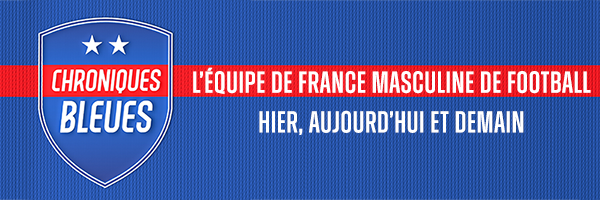

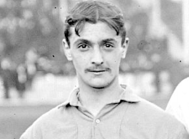
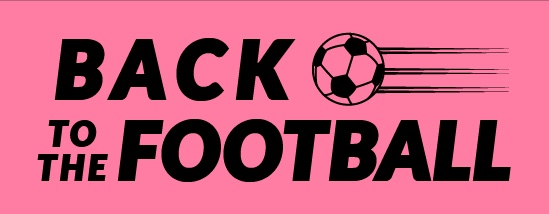

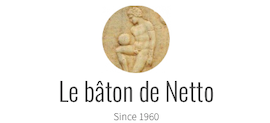

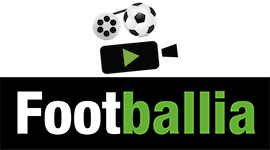
Vos commentaires
# Le 4 janvier 2024 à 06:54, par Nhi Tran Quang En réponse à : Dialogue avec Soccer Nostalgia : Henri Michel, saison 4 (1987-88)
Concernant Bellone, malgré qu’il ait marqué en finale de l’euro 1984 et qu’il ait une bonne trentaine de sélections, au même titre qu’un ferreri j’ai l’impression qu’il n’a pas toujours saisi les occasions pour montrer qu’il pouvait passer un cap que celui d’un remplaçant ou d’un « espoir » notamment après la coupe du monde 86, même si sa blessure en 88 à Montpellier a joué en partie un rôle dedans
Concernant Ayache si il a réussi à se faire une place dans le groupe et même dans le 11 de base notamment à la coupe du monde 86, il n’a jamais confirmé son potentiel après la compète.